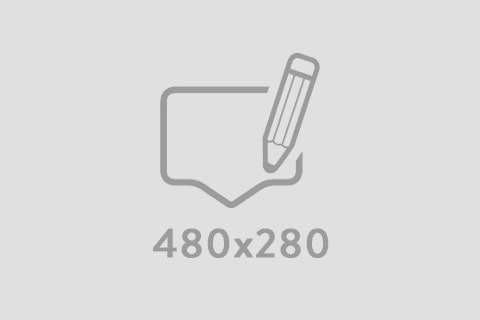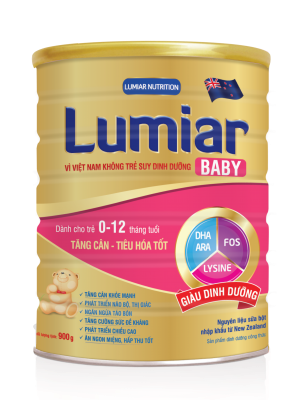
Iodine Content Requirements in Infant Formula
-
Minh Long Nguyễn
3.1) What is an infant formula?
An infant means a person not more than 12 months of age. An infant formula is a breastmilk substitute consumed by infants during the first months of life up to the introduction of complementary feeding. The product by itself can satisfy the nutritional requirements of a normal infant for its growth and development.
3.2) Is there any standard for the content of iodine in infant formula?
The Codex "Standard for Infant Formula and Formulas for Special Medical Purposes Intended For Infants (Codex Stan 72-1981)" stipulates that infant formula prepared ready for consumption in accordance with instructions of the manufacturer shall contain iodine in 10-60 μ g/100kcal (2.5-14 μ g/100kJ).
3.3) As most of the locally available infant formulae are imported, do they have the same iodine content?
The iodine content in infant formulae available in the market may vary from brand to brand. Codex requires the iodine content in infant formula to be within 10 to 60μg per 100kcal provided by the product. However, iodine content requirement of infant formula varies in different countries. For example, Japan has not established specific legal requirement for iodine content in infant formula while the minimal iodine content required in US, Canada , Singapore , South Korea , Australia and New Zealand is about 5μg per 100kcal. The below t able shows the Codex and overseas requirements on iodine content in infant formula:
| Iodine content in infant formula | |
|---|---|
| Codex | 10 to 60μg/100kcal |
| US | 5 – 75 μg/100kcal |
| Canada , Singapore and South Korea | At least 5 μg/100kcal |
| Australia and New Zealand | 1.2 – 10 μg/100kJ (~ 5 – 42 μg/100kcal) |
| EU | 10 – 50 μg/100kcal |
| Japan | No specific requirement |
3.4) What is the local regulation on the level of iodine in infant formulae?
Currently there is no specific local legislation on the level of iodine in foods including infant formulae. However, as stipulated in Section 54 of Cap. 132 of the Public Health and Municipal Services Ordinance, it is an offence to sell or offer for sale any food unfit for human consumption.
3.5) Which infant formulae tested by the CFS with low iodine level have raised public health concern?
Information regarding infant formulae tested by the CFS on iodine content is available at the Test Results section of the CFS website. Those that may have raised public health concern is available at the Press Release section of the CFS website.
3.6) Has any clinical cases been identified?
There was no apparent increase in any local clinical cases of iodine deficiency in recent years. The health implication concerning the intake of formula with low iodine level will be further investigated.
3.7) Is it likely to have health risks associated with the consumption of the concerned infant formulae?
When assessing whether a product may pose health risk to the targetted consumer, risk assessment study has to be carried out, taking into account of other factors, such as: the feeding instruction of each product, the iodine content in local boiled tap water, the average body weight of local infants, etc.. For infants exclusively fed on the concerned infant formula, the iodine intake might be below one-third of the WHO recommendation of 15 μg/kg body weight/day to 0-6 months baby, that may pose public health risk.
3.8) What should I do if my baby is consuming the concerned infant formula?
If your baby is solely relying on the concerned infant formula, you should stop feeding him/her with it. You should consider switching to another brand of infant formula until further evaluation is available. The Department of Health (DH) website has provided advice on information for parents with children who have consumed the alleged infant formula and notes on switching milk formulae for babies. If in doubt, please consult your family doctor or paediatrician.
If your baby is between 6-12 months, try to include foods that are rich in iodine (e.g. marine fish, seaweeds, egg yolk) as part of the complementary foods to ensure the child has adequate iodine intake. Iodised salt is not recommended for baby 12 months or below. Parents can also switch to another brand of infant formula or follow on formula that meets the Codex recommendation.
If breastmilk is part of the baby's food, lactating mothers are encouraged to consume more iodine rich foods and replace non-iodised salt with iodised salt (daily salt/sodium intakes from all sources should be below 5g salt or 2000mg sodium) when cooking.
Codex requires infant formula to contain 10 to 60 μg/100 kcal iodine. For an average infant formula providing energy of 500 kcal per 100g powder, an iodine content of at least 50 μg per 100g powder can roughly meet the Codex requirement. For infants with special nutrition requirement, please consult your family doctor or padeiatrician.
CFS has set up hotlines (3978 0600) for public on enquires regarding the concerned products.
The iodine content of some of the infant formulae available in Hong Kong are also uploaded on the CFS website for consumers reference.
DH has provided phone enquiries (2125 1111) for parents whose children might have taken the products concerned.
3.9) Referring to Q1.3, is it safe for infants 0-6 months to continue drinking the other 4 infant formulae tested with low iodine?
For products that do not meet the Codex minimum iodine content requirement, risk assessment will be carried out, taking into account factors including the feeding instruction, average body weight of the infants, iodine content in local boiled tap water and compared against WHO recommended daily nutrient intake for infants 0-6 months. For the 4 said products, risk assessment indicated that there is unlikely to have apparent health concern of iodine deficiency for infants 0-6 months.




